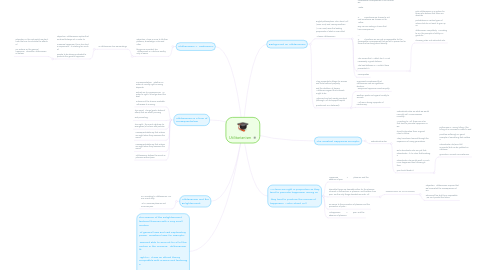
1. The science of the Enlightenment featured theories with a very small number of general laws and vast explanatory power. Newton’s laws, for example, seemed able to account for all of the motion in the universe. Utilitarianism fit right in: it was an ethical theory compatible with science and featuring a single law of morality with great explanatory power. It was a sort of science of morality.
2. Utilitarianism is a form of consequentialism
2.1. Consequentialism: Whether an action is morally right or wrong depends entirely on its consequences. An action is right if it brings about the best outcome of the choices available. Otherwise it is wrong.
2.2. The Good: Things (goals, states of affairs) that are worth pursuing and promoting.
2.3. The Right: the moral rightness (or wrongness) of actions and policies.
2.4. Consequentialists say that actions are Right when they maximize the Good.
2.5. Consequentialists say that actions are Right when they maximize the Good.
2.6. Utilitarianism defines the Good as pleasure without pain.
3. Utilitarianism and the Enlightenment
3.1. So, according to Utilitarianism, our one moral duty is to Maximize pleasure and minimize pain.
4. Utilitarianism = Hedonism?
4.1. Objection: There is more to life than pleasure; knowledge, virtue and other things are important too. Utilitarianism is a doctrine worthy only of swine.
4.1.1. Is Utilitarianism too Demanding?
4.1.1.1. Objection: Utilitarianism implies that we should always act in order to maximize happiness; this is too strict a requirement. It is asking too much of people to be always motivated to promote the general happiness.
4.1.1.1.1. Objection: In the real world, we don’t have the time to calculate the effects of our actions on the general happiness. Therefore, utilitarianism is useless.
5. The Greatest Happiness Principle:
5.1. Subordinate Rules
5.1.1. Subordinate rules are what we would normally call “commonsense morality”. According to Mill, these are rules that tend to promote happiness, so we should internalize them as good rules to follow. They have been learned through the experience of many generations. But subordinate rules are just that: subordinate. If it is clear that breaking a subordinate rule would result in much more happiness than following it, then you should break it.
5.1.1.1. Euthanasia or “mercy killing” (the killing of an innocent in order to end pointless suffering) is a good example of something that violates a subordinate rule (Don’t kill innocents) but can be justified on utilitarian grounds in unusual circumstances.
6. Background on Utilitarianism
6.1. English philosophers John Stuart Mill (1806-1873) and Jeremy Bentham (1748-1832) were the leading proponents of what is now called “classic utilitarianism”.
6.1.1. The Doctrine of Negative Responsibility 1. We are responsible for the foreseeable consequences of the choices we make. 2. Sometimes we choose to act, and sometimes we choose not to. Either way, we are making a choice that has consequences. __________________________________________________________ 3. Therefore, we are just as responsible for the foreseeable consequences that we fail to prevent as for those that we bring about directly. This means that “I didn’t do it” is not necessarily a good defense. The best defense is “I couldn’t have prevented it.”
6.1.1.1. Rule Utilitarianism is an option for those who believe that there are absolute prohibitions on certain types of actions but do not want to give up on utilitarianism completely. According to RU, the principle of utility is a guide for choosing rules, not individual acts.
6.1.2. Prerequisites
6.2. They supported suffrage for women and those without property, and the abolition of slavery. Utilitarians argued that criminals ought to be reformed and not merely punished (although Mill did support capital punishment as a deterrent).
6.2.1. Proponents emphasized that utilitarianism was an egalitarian doctrine. Everyone’s happiness counts equally.
6.2.2. Bentham spoke out against cruelty to animals. Mill was a strong supporter of meritocracy.
7. “Actions are right in proportion as they tend to promote happiness, wrong as they tend to produce the reverse of happiness” –John Stuart Mill
7.1. Happiness = pleasure, and the absence of pain
7.2. desirable things are desirable either for the pleasure inherent in themselves, or pleasure, and freedom from pain, are the only things desirable as ends...all
7.2.1. OBJECTIONS TO UTILITARINISM
7.2.1.1. Objection: Utilitarianism requires that we know what the consequences of our actions will be, but this is impossible. We can’t predict the future.
